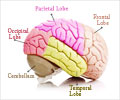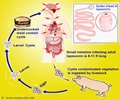Delayed onset and reduced severity of hereditary diseases is made possible in mice by a wonder drug component.

Epigenetic changes are often caused by DNA methylation, a process whereby a methyl group is attached to DNA, silencing gene expression.
Research suggests that a small percentage of our epigenetic tags cling on. And potentially our worst habits - smoking or overeating - are the ones that can be passed on to offspring and even further down the hereditary line.
Huntington's disease is an incurable, hereditary brain disorder causing severe damage to nerve cells and various parts of the brain to deteriorate. The affected individuals' abilities to walk, think, reason and talk are gradually eroded to such a point that they eventually become entirely reliant on other people for their care.
Scientists tested Huntington's disease-afflicted mice to test whether therapies can change gene expression in parents to help their offspring.
Elizabeth Thomas, associate professor at The Scripps Research Institute (TSRI), who led the study, said, "One exciting aspect of our study is that the parental drug treatment made the offspring better, not worse, like other compounds known to cause transgenerational effects."
In previous studies, the same investigators determined that the compound HDACi 4b worked to reduce symptoms and delay disease onset in mice. The researchers were curious as to know if the benefits could be passed on to offspring through epigenetics.
The study concludes that offspring of mice treated with the drug have a delayed onset and reduced symptoms of Huntington's disease.
Source-Medindia
 MEDINDIA
MEDINDIA




 Email
Email






